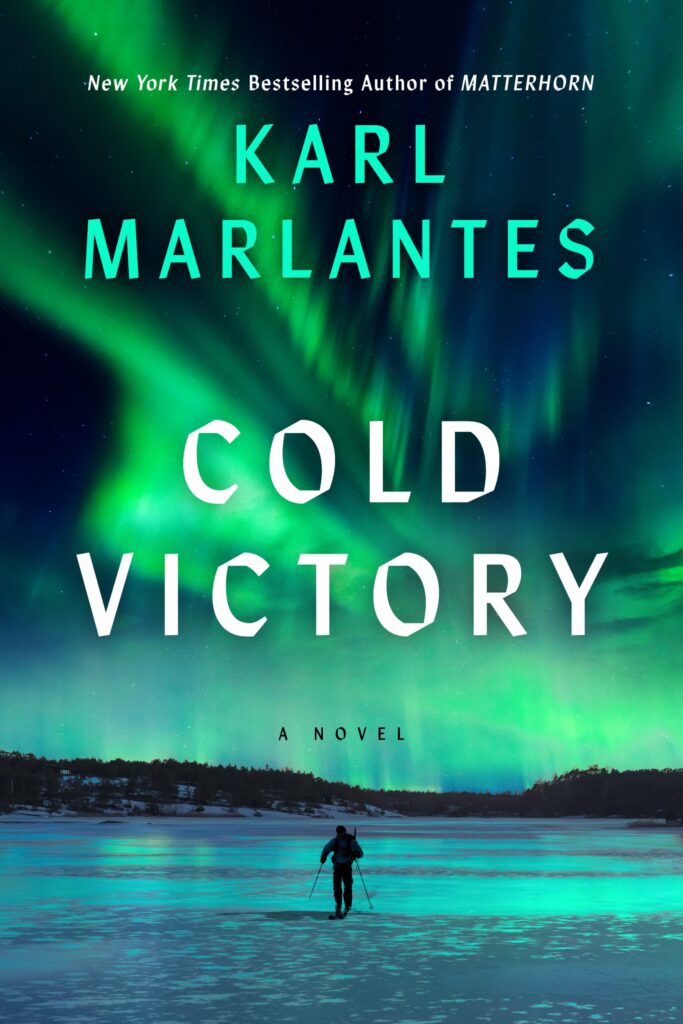Set in Helsinki, Finland in January/February 1947, Karl Marlantes’ new novel, “Cold Victory,” takes place at the beginning of the Cold War when the United States and the Soviet Union are still wartime allies — but barely. Meanwhile, Finland, a small democratic country that shares a border with the Soviet Union, feels pressure from both countries for its loyalty.
“Cold Victory” opens with the arrival in Helsinki of Arnie Koski, a Finnish-American veteran now working for the State Department, and his smart, vivacious wife, Louise. Louise, from Oklahoma, speaks neither Russian nor Finnish, has never before been east of the Mississippi River, and is completely naive in the ways of international diplomacy, a lack for which she compensates with her determination to help her husband succeed in his posting.
At a diplomatic function shortly after their arrival, Arnie recognizes Mikhail Bobrova, a Russian military attache with whom he crossed paths during the allied invasion of Germany. As the men drink and share war reminiscences, good-natured boasting about the military might and superiority of their respective countries turns into a challenge: a 500-kilometer cross-country wilderness ski race through Northern Finland over 10 days, each man carrying everything he will need for the dead of winter crossing. They agree to keep the race a private affair, passed off to superiors as “scouting ingress and egress routes” for use in future military operations.

Once Arnie has left for the north country, Louise gets the idea to use the event to raise money for a local orphanage by selling raffle tickets, with purchasers guessing which skier will win and by how much time — a friendly competition between two wartime allies demonstrating goodwill toward the Finnish people and cross-cultural cooperation. She has been developing a friendship with Mikhail’s wife, Natalya, and sees the project as something the two wives can work on together. But Natalya, orphaned after the execution of her parents for purported wrongdoing and well aware of the brutality of Stalin’s secret police, has deep reservations about the plan.
Indeed, as the story of the race is picked up by local newspapers and spreads across the globe portrayed as a contest between communism and democracy, Louise realizes the danger to which she has exposed Natalya, Mikhail and their two children. “What do you think Comrade Stalin will think of a hero of the Soviet Union who is beaten by a degenerate, soft capitalist American?” Natalya angrily confronts Louise, concluding, “You have no idea what they can do to you.”
While the men’s race is the plot’s engine, the story centers on the friendship between Louise and Natalya and their two very different experiences in the world. Louise is filled with optimism and a belief that her voice and experiences matter. Natalya comes from a world “where ‘facts’ could be true or untrue, where the interpretation of ‘facts’ could be as changeable as political leadership.”
This is not the first time Marlantes, a Pacific Northwest native and decorated Marine who fought in Vietnam, has taken on Finland and war as subject matter; he is also the author of “Matterhorn: A Novel of the Vietnam War” and “Deep River,” a story about a Finnish family who flee Finland and relocate to a logging community in the Pacific Northwest. “Cold Victory” succeeds as historical fiction in shining a light on lesser-known impacts of WWII on the small country of Finland.
The sections written from Arnie and Mikhail’s perspective during the race read like a riveting outdoor survival story. And the political intrigue angle will keep readers turning pages to find out what happens next. Marlantes also includes food for thought about the ways totalitarian regimes operate and the real-life impacts of loss of truth and privacy in a society. “Cold Victory” is an engrossing read that will appeal to a broad range of interests.
Lisa Gresham is the collection services manager for the Whatcom County Library System, wcls.org.





